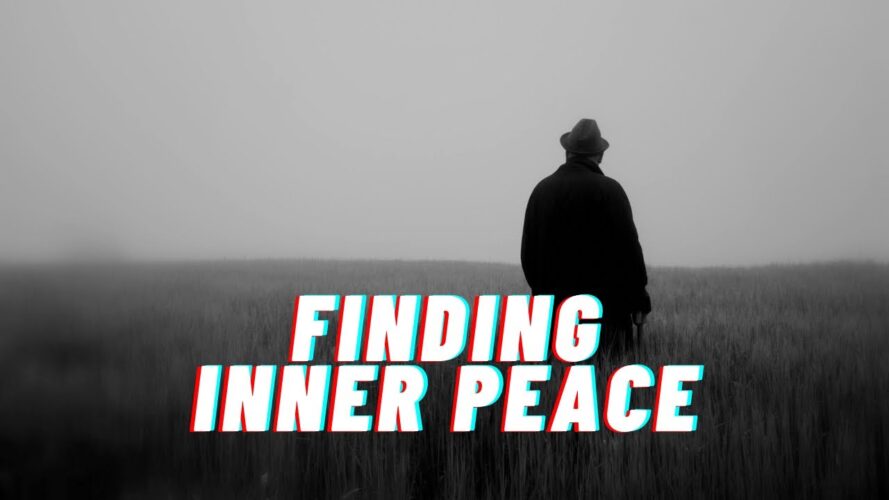Have you ever wondered how meditation can transform not only your mind but also your understanding of truth and purpose? My journey into meditation, rooted in spiritual practices, opened my eyes to a deeper connection between mental well-being and the pursuit of truth.
I only recently discovered that World Mental Health Day exists. It’s encouraging to know there are organizations bringing awareness to issues people face around the world. While it is not something I often talk about, not many people know that I volunteered and dedicated approximately a year of my life to an educational charity focused on meditation practices.
Secular Practice with Spiritual Roots
The organization markets its teachings and practices as secular, but upon deeper involvement, it becomes clear that this isn’t entirely accurate. I have spoken to many of the meditation teachers, who agree that most of the ideas stem from Buddhist philosophy. Nonetheless, the focus remains on meditation practices and their scientifically backed benefits, with an undertone of this philosophy. This experience allowed me to see firsthand the complexities of presenting spiritual practices in a secular way.
Conversations on Meditation and Mental Health
During my time there, I met hundreds of people from diverse backgrounds and religious traditions. I spoke in depth with many of them about why they chose to participate in these meditation retreats. I encountered individuals dealing with terminal illnesses, survivors of various forms of abuse, and a range of others struggling with relationship issues. There were also students of philosophy and psychology simply interested in the practice and in finding a more peaceful life. These conversations revealed a wide range of philosophical and religious ideas – some understandable, and others quite unusual – giving me a deeper perspective on the personal struggles people face.
Two Approaches to Mental Well-Being
Reflecting on these encounters, I once read a book by an Austrian psychologist, Alfred Adler, who argued that many mental health issues stem from poor communication. Many people struggle to express themselves or don’t understand how to do so effectively, which can lead to deeper emotional problems. Building on this idea, I believe there are two key approaches that can help improve mental well-being. One is through scientific methods, and the other is through self-education. With knowledge comes understanding, and with understanding, change usually follows.
My own interest in philosophy comes from a desire to know what is true and to explore the validity of the truths that people claim. This pursuit precedes any belief system, as the theory of absolutism suggests: two contradictory ideas cannot both be true; one is true, and the other is false. I encourage readers to reflect on their own beliefs and question the truths they hold, as this process of inquiry can be a powerful tool for self-improvement.
The Concept of Fitra and Spiritual Connection
In Arabic, there is a concept called Fitra, which can be loosely translated as the natural disposition to seek truth and to find God (or reality) within that truth. From this perspective, one could argue that this is our main purpose. Many mental health issues are tied to what people believe and how they see themselves. In this context, older traditions hold significant weight, and the rise in mental health issues might be a consequence of a predominantly secular education system that overlooks spiritual needs.
I have spent a portion of my life meditating, including participating in silent meditation retreats where I would meditate for 10 hours a day for 10 days. From experience, I can testify that meditation practices are effective in bringing peace to one’s life. This practice is essentially the science of the mind, and it is beautiful. However, the persistent sense of void and emptiness never truly disappears; it may be temporarily filled through intimate relationships or accomplishments, but it often returns. In Islam, this is understood as the concept of Fitra – the search for truth, the acceptance of God, and finding union through prayer and meditation according to divine laws. It reflects the natural order of existence and the innate desire for spiritual fulfillment.
A Practical Path to Mental Health
Meditation can be a helpful starting point for those looking to connect with their inner selves, but its benefits are often deepened when combined with self-reflection on spiritual matters. A small, actionable step can be daily mindfulness practices or journaling about one’s beliefs and values, as these activities can guide a person toward deeper self-awareness and peace.
The Value of Sufism and Islamic Philosophy
I encourage people to explore philosophy and human behavior. A common reason for mental health struggles is a lack of spirituality, meaning, and purpose. However, diving into these topics might be difficult for someone educated in a secular environment. Exploring Sufism, the heart of Islamic traditions, can be a gentle entry into spiritual exploration and may resonate with those seeking a deeper understanding of life’s purpose.
A Call to Reflection and Exploration
In seeking truth, finding mental peace, and pursuing deeper meaning, it becomes clear that spirituality and self-education play key roles. Whether through meditation, philosophical inquiry, or spiritual exploration, taking the time to understand our beliefs and practices can profoundly impact our mental health and sense of fulfillment. I encourage everyone to reflect on their spiritual path, question their truths, and explore philosophies like Sufism to nurture their mental well-being and connect to a deeper sense of self.
















